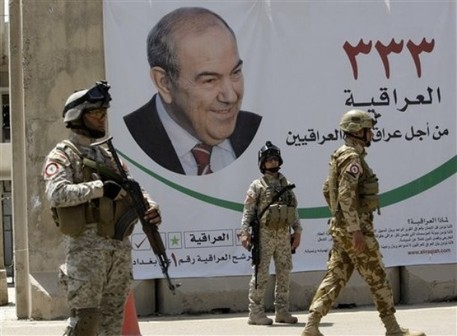
Looking back on President Obama's Cairo speech, George Packer wonders if the so-called freedom agenda has become too cynically applied:
this Administration will devote its energy to repairing relations with foreign governments, and will not risk them for the sake of human rights. Where the stakes are low, as in the West African nation of Guinea, the Administration speaks out against atrocities, with positive effect; but where thereâ??s a strategic interest, as in Ethiopia, which has jailed dozens of journalists and opposition politicians, the policy is mainly accommodation.
What if people around the world want more than a humble adjustment in Americaâ??s tone and behavior? What if American overtures to nasty regimes fail, because those regimes have a different view of their own survival? Then the President will have to devise a fallback strategyâ??preferably one that answers the desires of the people who applauded in Cairo, and doesnâ??t leave another generation cynical about American promises. [Emphasis added. - KS]
But isn't part of the problem that the so-called freedom agenda has become a de facto, as Packer puts it, "fallback strategy"? If the United States should learn anything from the previous administration, shouldn't it be that using the rhetoric of freedom as window dressing or, even worse, a "fallback" for policy failures only corrupts and sullies the very word itself?
For want of an actual freedom agenda, the American president is often asked to speak out against every petty despot and dictatorship around the world. But the United States cannot, I hope it goes without saying, invade and occupy every undemocratic country allegedly in need of liberation. Were it even effective - which, even in the cases of Iraq and Afghanistan, would be a rather untenable claim - it's simply not sustainable.
I believe a big part of the problem is the way in which we measure success and failure in American foreign policy. If, getting back to Packer, it's the American president's job to combat global cynicism, then we are in a lot of trouble. I think sequence matters, and if the United States wants to address freedom it should first start with basic human needs such as health. George W. Bush - for everything he got wrong about Iraq and Afghanistan - seemed to understand this in the case of Africa.
It might also be helpful to retain the moral high ground while discussing a sustainable freedom agenda. Which, for example, is more likely to engender global cynicism: the American president's failure to speak out against Ethiopia, or Americans publicly debating whether or not a U.S. citizen deserves his Miranda rights simply because he's a Muslim?
(AP Photo)











